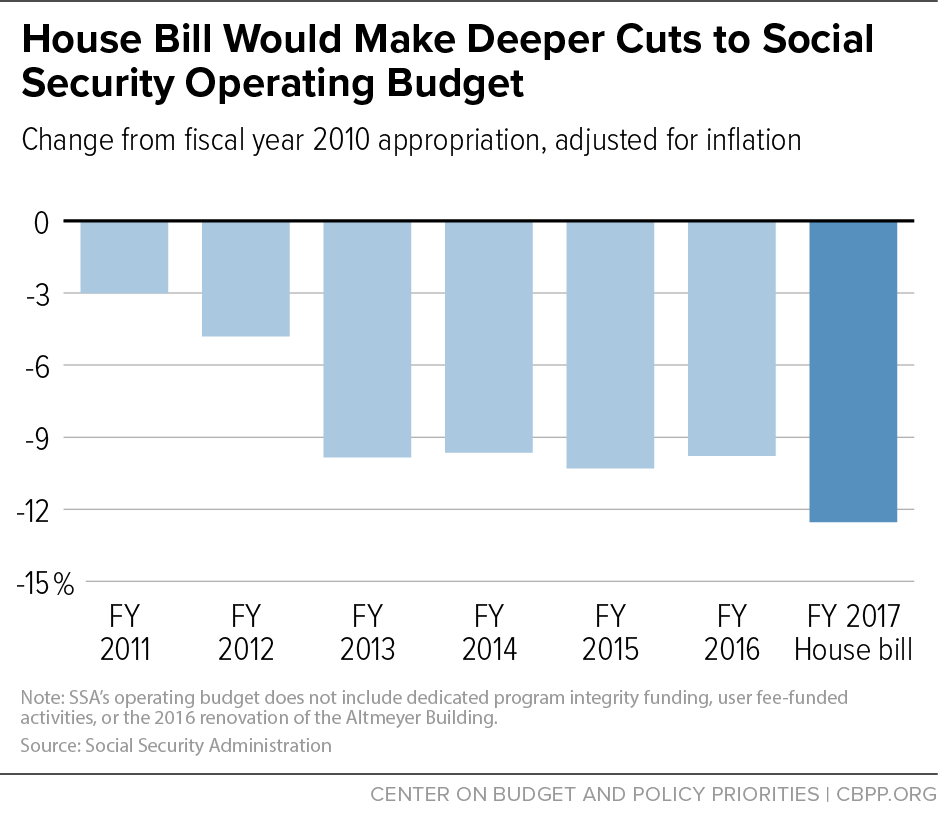BEYOND THE NUMBERS
House’s Social Security Administration Cuts Would Hurt Customer Service and Program Integrity
After years of Social Security Administration (SSA) funding cuts, the House Appropriations Committee has proposed yet more damaging cuts to the agency for 2017. As our report explains, SSA’s core operating budget shrank by 10 percent from 2010 to 2016, after inflation. The Labor, Health and Human Services, and Education appropriation bill now before the full House would slice another $100 million from SSA’s operating funds (see chart). Beneficiaries and taxpayers would pay the price, in worsening customer service and weakened program integrity.
Service to the public would inevitably suffer under the House bill, as SSA struggles to serve a record number of beneficiaries. SSA officials have laid out the bad choices that the agency faces under the House-proposed cuts:
- A full hiring freeze, with no replacement for staff who retire or leave the agency.
- One to two weeks of staff furloughs, during which SSA’s 1,245 field offices would be closed to the public.
- Further reductions in the hours that field offices are open to the public. Due to previous cuts, field offices are already closed a half day every Wednesday and at 4 p.m. every other business day.
- Deterioration of service on the agency’s national toll-free number. Busy rates and hold times would spike.
- No funding for modernization of SSA’s computer systems, which would decrease productivity and result in service interruptions.
- A growing number of disability applicants waiting for a decision on their appeals. Currently, over 1 million people wait an average of a year and a half for a final decision.
- Increasing risk of improper payments, as the agency struggles to balance front-line service with critical behind-the-scenes work.
The House bill is penny-wise and pound-foolish: it would leave $393 million in additional funding for program integrity on the table. Last year, Congress agreed to allow greater funding for SSA’s program integrity activities, including the regular follow-ups with disability beneficiaries to identify those who have recovered enough to work. These reviews more than pay for themselves over time; each $1 additional dollar invested in them saves $8, according to SSA. Still, the House bill doesn’t provide any of the agreed-upon increase for 2017.
Both the House and the Senate should rethink these harmful cuts and provide SSA enough funding to give Americans the high-quality Social Security service that they expect — and deserve.

